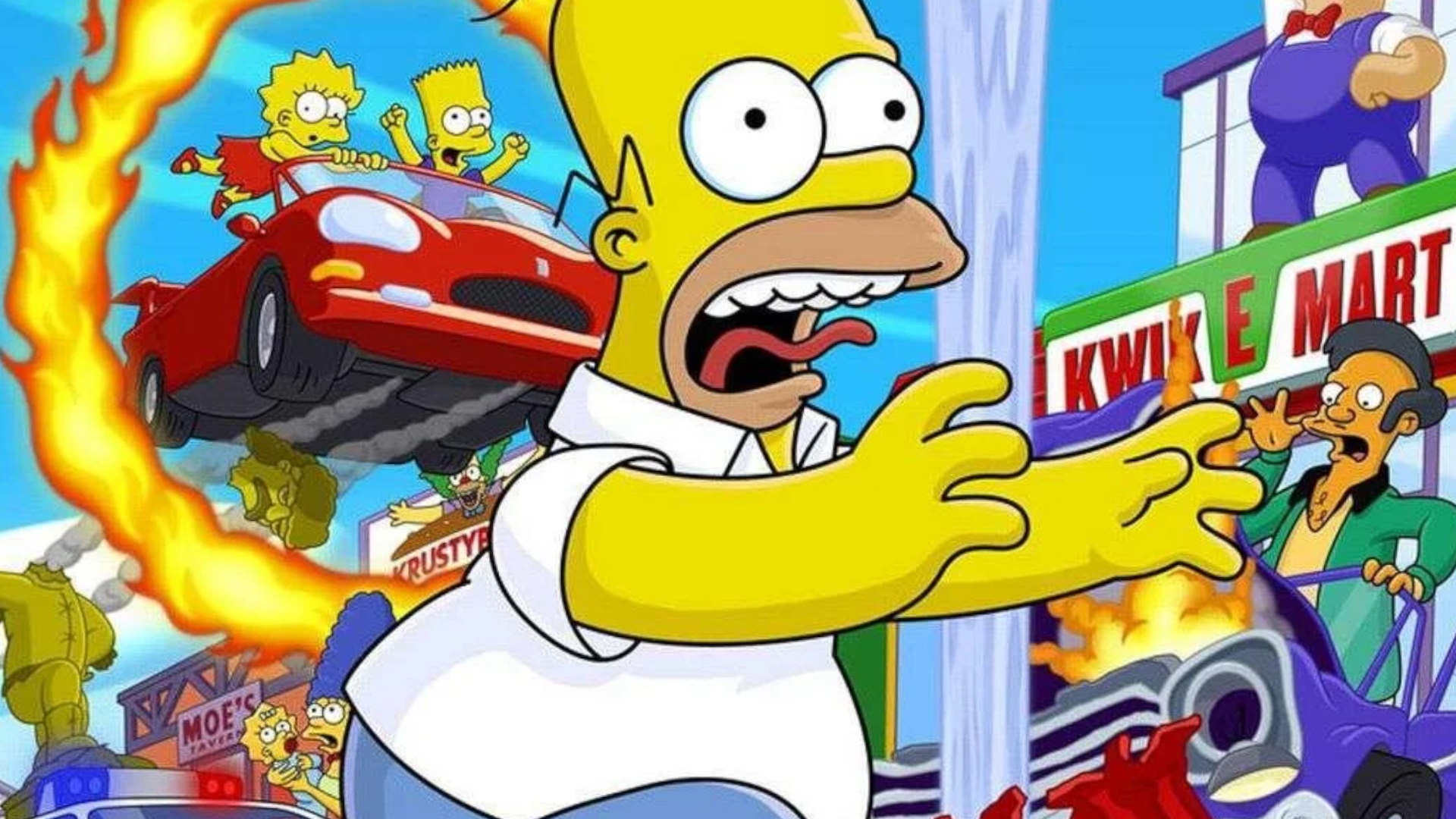Devs from The Simpsons Hit & Run say the game could've had four sequels, but the publisher said nah: 'The stars [were] aligned … and then it was just: huh, I guess we're not [making them]'
D'oh.

The Simpsons Hit & Run—a GTA-style send-up that somehow managed to be actually pretty dang good—came out in 2003 to some stirring commercial success. I have some fond memories of romping around Springfield as an accident-prone Homer, and while I'm certainly not alone, the game never had a sequel. Turns out, it very nearly had four.
According to an interview clip from the MinnMax YouTube channel, that's down to the publisher's bizarre lack of interest. "The Simpsons came back with an offer: five games for X amount of dollars. It was a really good deal, but Vivendi [the publisher] said 'no'," recalls John Melchior, executive producer on the game.
When asked by interviewer Ben Hanson what the logic of that choice was, all Melchior can offer is an "I don't know … for the [Hit & Run] sequel, we had airships, we had planes, we had lots to go [with] on the Simpsons. This was going to be a franchise, no doubt, in everybody's minds."
Sometimes a company will scrape past a jackpot because it doesn't want to bet on the wrong horse, but what's baffling is that more Hit & Run wasn't really a risk. The game sold one million copies by 2004, and three million by 2007. By all accounts, it was a commercial success. Assuming Melchior and his team could keep up the good work, a full series would've done well. His team was so confident that work on the sequel had already started. "It was a no brainer, of course we were gonna do this."
Darren Evenson, a designer on the game, also remarks: "I remember the team just being shocked that we didn't continue on with the sequel. Like John said, it was a no-brainer. Of course we were going to be doing this. The stars [were] aligned … and then it was just like a: huh, I guess we're not."
"I remember the call," says Melchior. "They were like 'we decided to pass', and I was like: 'On which game?' 'The Simpsons licence.'" He recalls Steven Bersch, who was the president of Fox Interactive at the time, being similarly confused: "He was just like 'I don't understand, I gave it to you on a silver platter, why aren't you just saying yes and doing these games?' It was a really bizarre decision, I'll never understand it. Most people on the production level never understood it."
While a game not getting a sequel isn't exactly new, it's rare that the studio itself would have no idea why. Usually fingers can be pointed at money problems, mismanagement, overambition—but it really does seem like Vivendi just wasn't interested in the golden goose.
Keep up to date with the most important stories and the best deals, as picked by the PC Gamer team.

Harvey's history with games started when he first begged his parents for a World of Warcraft subscription aged 12, though he's since been cursed with Final Fantasy 14-brain and a huge crush on G'raha Tia. He made his start as a freelancer, writing for websites like Techradar, The Escapist, Dicebreaker, The Gamer, Into the Spine—and of course, PC Gamer. He'll sink his teeth into anything that looks interesting, though he has a soft spot for RPGs, soulslikes, roguelikes, deckbuilders, MMOs, and weird indie titles. He also plays a shelf load of TTRPGs in his offline time. Don't ask him what his favourite system is, he has too many.

